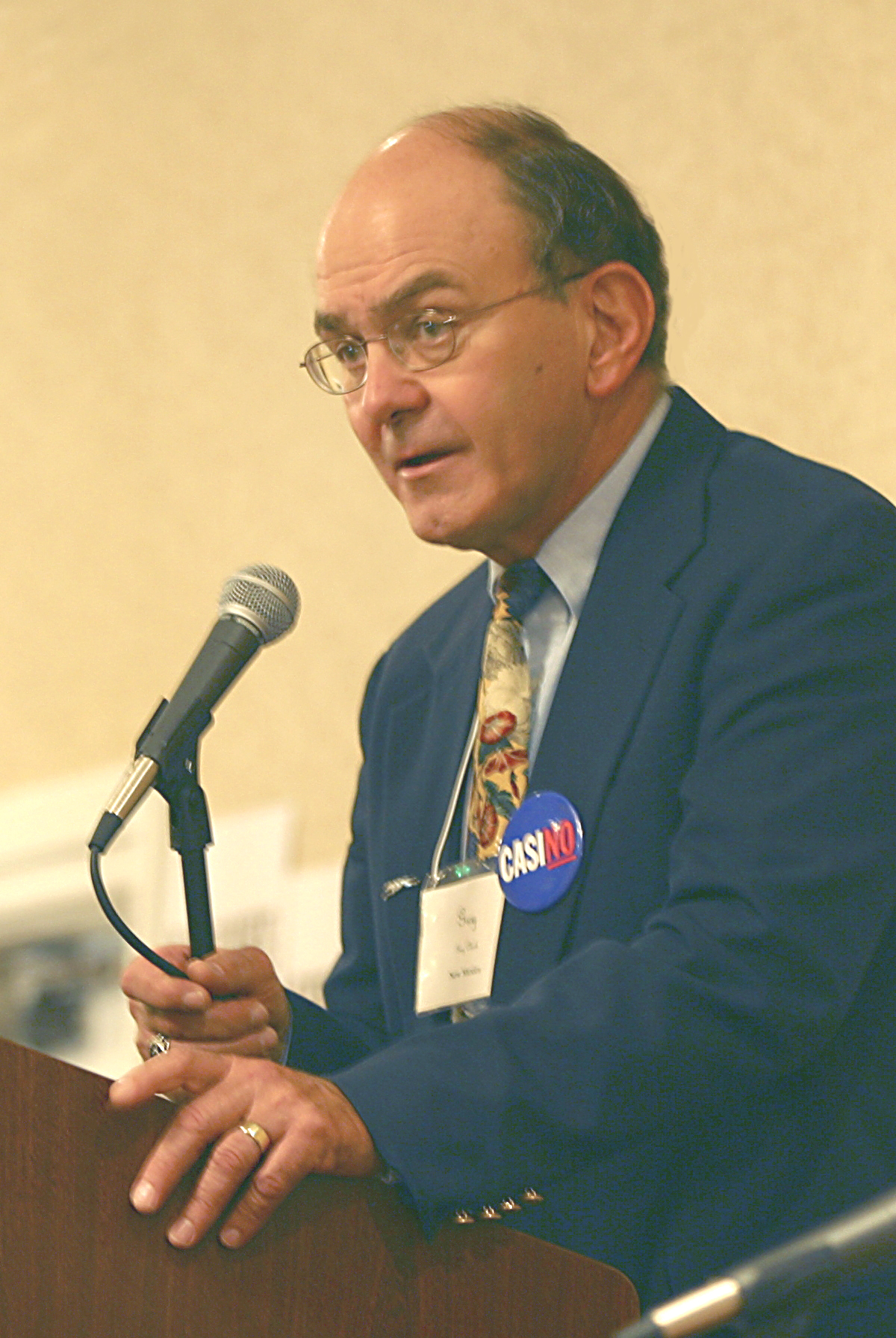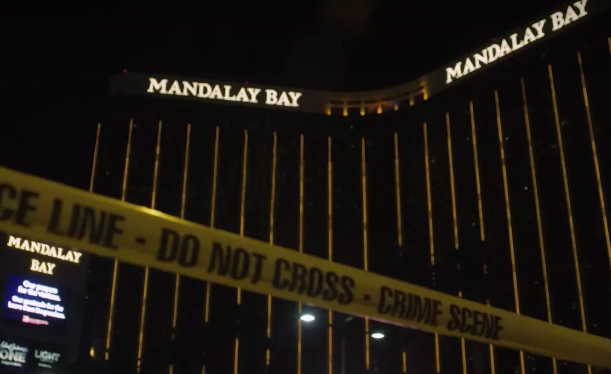Former Assistant US Attorney Mike Fagan, an expert in online gambling prosecution, wrote the memo below about the ineffectiveness of geolocation technology.
Revenue Stabilization And Tax Policy Committee Meeting October 30 On Sports Betting
****ACTION ALERT– REVENUE STABILIZATION AND TAX POLICY COMMITTEE MEETING OCTOBER 30 ON SPORTS BETTING****
The Revenue Stabilization and Tax Policy Committee will meet on October 30, 2018, and the last item on their agenda will be sports betting. They will be meeting in the State Capitol in Santa Fe in room 322. It appears that they are taking a favorable position on this issue.
We need to have representatives there to express our opposition to this form of gambling being introduced to our state. Please attend and be prepared to express your opinion.
Contact AG Balderas About Santa Ana Sports Betting Parlor
****ACTION ALERT–CONTACT AG BALDERAS ABOUT SANTA ANA SPORTS BETTING PARLOR****
Santa Ana Pueblo opened a sports betting operation in the Santa Ana Star Casino Tuesday, October 16, 2018. This action by Santa Ana pueblo violates the Indian Gaming Regulatory Act passed by Congress in 1988. IGRA Section 2710 (d)(1)reads, ” Class III gaming activities shall be lawful on Indian lands only if such activities are–(B) located in a State that permits such gaming for any purpose by any person, organization, or entity...” It is clear in IGRA, the legal foundation for all tribal gambling, that for a tribe to adopt a gambling activity it must already be legal off-reservation in that state. Sports betting is not legal in New Mexico, therefore Santa Ana’s sports betting operation would violate the Indian Gaming Regulatory Act.
The Mississippi Band of Indians have opened a sports betting operation after complying with state law. Oklahoma is working on legislation to legalize sports betting on the reservation. A handful of other states, including California and Connecticut, have tribes encouraging legislation legalizing tribal sports gambling, but none of the aforementioned tribes have attempted a fait accompli, springing it on their state without proper coordination with their state. These tribes have all recognized the IGRA requirement to follow state precedent, and follow proper regulatory procedures.
If Santa Ana is successful in operating a sports betting parlor with no regulatory confirmation by the state, the other New Mexico tribes will certainly follow suit. This would be the introduction of a whole new form of gambling in addition to the plethora of gambling already exploiting the citizens of the state, without proper regulatory approval. This form of gambling is especially addictive with teens and young adults. We already have way too much gambling addiction in the state.
States that have legalized commercial sports betting are usually moving into Online sports betting. This is the beginning salvo in New Mexico that would certainly lead to Online sports betting in our state. We must stop this at the ontset.
Hector Balderas, the New Mexico Attorney General has the power to sue Santa Ana Pueblo in federal district court and ask for a cease and desist order. The sports betting operation is clearly violating federal and state law. Please contact AG Balderas and ask him to take Santa Ana Pueblo to the federal district court and get it shut down. His phone number is Toll Free 1-844-255-9210. You will most likely be talking to an assistant, but you can ask him/her to pass along the message to the AG to take Santa Ana Pueblo to court to get a stay.
****PLEASE CALL AS SOON AS POSSIBLE****
SPGNM Chairman Meets With SPG Leaders
Dr. Guy Clark, chairman for Stop Predatory Gambling New Mexico participated in a phone conference with the national organization, Stop Predatory Gambling, on October 15, where he reported on the opening of the sports betting operation at the Santa Ana Star Casino. He reported proposed action to try to get it shut down.
Gambling Addiction The Spark That Set Off The Mandalay Bay Casino Massacre
The Las Vegas Police Department released their final report on the deadly shooting spree carried out by Stephen Paddock from the 32nd floor of the Mandalay Bay Casino Hotel that killed over fifty people and injured over 600 others. They seem mystified about why Paddock would do such a thing.
Reports indicate that Paddock’s wealth diminished from about two million dollars to about half a million in his last two years of his life, much of which was lost to gambling. Sycophants of the gambling industry, the shills that write for or about the casinos, referred to Paddock as a “responsible gambler,” or a “professional gambler.” Video poker, his favorite game, produces no experts. Computer programming determines the outcome of every game the instant the “Play” button is pushed. The cards the player uses has zero influence on the outcome of the game. The computer is not limited to a 52-card deck, so it can use any cards desirable to get the predetermined outcome. Video poker does not produce “professional gamblers,” only consistent losers.
The truth is that Stephen Paddock was a gambling addict that had his life destroyed by his gambling addiction. Several psychologists, including Phillip Kronk, M.S., Ph.D., have described Paddock as a gambling addict whose life was out of control.
Gambling addicts who have had their lives ruined do extreme things, with an alarming number of them taking human life–usually their own. The suicide rate among gambling addicts is three times higher than the suicide rate among cocaine addicts, and about 80% of gambling addicts carry out ideation of their own suicide, concocting elaborate, specific scenarios of their death. Paddock was an extreme example of the self-destructive inclination of gambling addicts by taking many lives with him. We can speculate about why he took this unusual, extreme course, but the fuse that set it off was gambling addiction.
To many people, and a fair number of experts, all of this is fairly obvious. Why did the Las Vegas Police Department fail to recognize this explanation? The gambling industry, including casinos, is a corrupting influence. Many writers have written about the corrupting influence that the casino gambling has had on the governmental and social institutions in Las Vegas, including the police force (eg., “New Documentary Reveals Major Coverup and Corruption in Las Vegas Police Department,” Liz Posner, Alternet). They are heavily invested in keeping the well-oiled gambling machine working smoothly, pulling in the tourists and generating their salaries and pay-offs.
The gambling industry talks about “responsible gaming” and “entertainment gamblers,” but they are superfluous to their business model. It is swell established that over half of their income comes from problem gamblers. Their business model is dependent on gambling addicts. Their prosperity–even their very survival–depends on gambling addicts. Any institution that routinely and callously destroys lives to increase their wealth produces monsters.
Monsters, like the executives at MGM Mandalay Bay Casino, care little that their actions ruin lives and contribute to the death and misery of many people. If that sounds extreme, consider the law suit that MGM Resorts International has lodged against the families of the dead and injured in the massacre that took place outside their hotel. Not only do the victims have to deal with their initial grief and loss, but they now face legal action against them that will subject them to more emotional and financial trauma.
Three sentences encapsulate the story around the police report. Stephen Paddock was a gambling addict. Gambling addiction was the spark that ignited the massacre at the MGM Mandalay Bay Hotel. The Las Vegas Police are doing a “whitewash” to cover up the true cause of the massacre to protect the gambling industry in Las Vegas.
It’s time for the government to get out of the predatory gambling racket.
Dr. Guy Clark, chairman
Stop Predatory Gambling New Mexico
Journalists Reveal How Casinos are Complicit in Money Laundering
Inspired by a criminal case of money laundering in Ontario, CBC investigative journalists used $30,000 to see if they could launder it through two B.C different casinos. They were able to convert $24,000 into “clean money,” an 80 per cent “success” rate.
How Online Gambling Drains Millennial Finances
Gambling has been normalized among young people and is an unconscious drain on their cash. The constant temptation of having a gambling app in your pocket leads to a stream of spending that’s hard to control. Phones are distracting enough as it is, whether it is the unanswered WhatsApp messages in your pocket or 200 Instagram pictures you’ve yet to like. Now betting companies are exploiting the iPhone generation’s obsession with our phones to hook us into betting more, and more frequently.
According to Financial Times, more than one-fifth of 18 to 24-year-olds confessed to gambling in 2017.
Gaming The Poor
This New York Times column spotlights how casinos contribute to the lack of mobility out of poverty facing millions of Americans. As casinos have spread into de-industrialized cities, dying resorts and gritty urban areas, the rate of gambling participation has grown among lower-income groups. A research team from the University at Buffalo and SUNY Buffalo State has conducted studies that offer new evidence of the exploitative effects of casino gambling on lower-income Americans. Examining 15 types of legal gambling, the researchers came to a striking conclusion: Casino gambling had by far the most harmful effects on people at the lower end of the income ladder.
Average debt of problem gamblers in Wisconsin exceeds $34,000
They max-out credit cards, drain their savings and checking accounts, seek payday loans, borrow money from relatives and friends, steal from employers and write bad checks. On rare occasions, they even rob banks. On average, they are $34,078 in debt by the time they seek assistance.
These are characteristics of those who called the helpline at the Wisconsin Council on Problem Gambling in 2017. The council received 12,674 calls for help last year. The heavy financial losses are a catalyst to other serious problems. Gamblers have reported thoughts or attempts of suicide, bankruptcies and falling hopelessly behind on house and utility payments.
States that Rely Lotteries Funding the Most
This Washington Post story looks at the intended use for lottery revenues in each state. On average, lotteries accounted for 2 percent of overall state revenues, according to an analysis of Census data from researchers at the Rockefeller Institute of Government, a State University of New York policy think tank.



